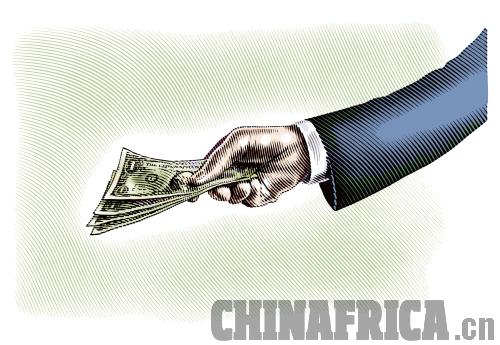| 
The Kingdom of Swaziland is wilting under a crippling budget deficit that the International Monetary Fund (IMF) has pegged at 14.3 percent of the country's GDP.
This is within the same range as the Greek budgetary shortfalls ultimately giving precedence to the emergence of an African equivalent of what we have recently seen unfolding in European economies, underpinned by events in the countries with the acronym PIGS (Portugal, Ireland, Greece and Spain). Swaziland also has the highest HIV infection rates in the world and poverty is believed to be on the increase. Labor disgruntlements over alleged poor working conditions and low wage regimes have recently been prominent. This trend, however, has not been customary in the normally calm realm of Swaziland, an absolute monarchy of 1.2 million people.
Swaziland has of late been facing reduced income earnings from the Southern African Customs Union (SACU) and this is seen as one of the major contributory factors to the existing budget deficit. However civil society groups that make up the Swaziland Democracy Campaign coalition have alleged that the deficit has been exacerbated by undisciplined expenditure tendencies. They claim that the prioritization of "white elephant" projects such as the Sikhuphe airport and the lifestyle of the royal family (led by King Mswati III) are also fundamental to the current scenario where the country seems to be living beyond its means. The king is the head of state, who appoints the prime minister and a small number of representatives for both chambers of parliament.
However, in an effort to mitigate against this economic stranglehold, the Swaziland authorities approached the South African Government with a request for a bailout of $370 million. On August 3, South Africa announced that it would dispense the requested amount to Swaziland. However more than a month from that date, the money has not been signed for and the Swaziland authorities seemed to develop cold feet in tapping into the provision.
In providing for the bailout, which is a loan facility to Swaziland, the South African Government has also attached political reform conditions to it. Some of these conditions involve the devolution of powers from the central and dominant Tinkhundla political system, which centralizes power in the monarchy and other traditional forms of governmental systems. The loan conditions therefore makes stringent proposition on the unbanning of political parties, broadening of the democratic dialogue process to include citizenry and all stakeholders, laying key milestones and timelines for agreed political reforms, amongst a host of other such indicative measures.
Prince Mahlaba, a senior member of the Liqoqo, which is King Mswati's advisory council, is one of the critical proponents against accessing the bailout. He said, "God gave us the Tinkhundla and we won't trade it for $370 billion. The monarchy should be praised for preserving peace." He further argued that since the provision is a loan, which will be paid back with an interest provision, there is therefore no reason to lay out other political conditions that seem not to be directly linked to Swaziland's capacity to pay back. Judging from the subsequent events, Swaziland is considering other options as King Mswati also dispatched emissaries to Qatar and Kuwait in what seems to be a search for non-conditional assistance. According to a report in The Times of Swaziland, the king also secured financial assistance from the European Union.
However, given the interconnectedness of Swaziland and South Africa, geographically (Swaziland is nearly surrounded by South Africa), economically (about 80 percent of Swaziland's imports are from South Africa) and diplomatically (both countries are members of the Southern Africa Development Community – SADC), this bailout situation seems to have future implications for the two countries' relations as well as some politico-economic influence on Southern Africa as a region. South Africa's demand for political reforms as a pre-qualifying condition for the bailout is in itself an indication of the country's opportunistic leveraging for expressing its desire for political reforms in Swaziland against the sustenance of the Tinkhundla monarchical system of government.
The precedence hereon may really be on how Southern African countries can maintain the balance between their individual sovereignty and fundamental SADC guidelines in the wake of advancing macro-economic challenges. The SADC Treaty of 1992 states that some of the objectives of the regional body are to ensure that there is deeper economic cooperation, common political, social and economic values and systems. This is also against the background where individual sovereignty of each member state is upheld. The case of Swaziland may be indicative of how the region is yet to achieve an agreed foundation in meeting the outlined objectives and how economic power may in the end be the tool that unites or divides the aspired commonality.
(The author is executive director of the African Reform Institute, Harare, Zimbabwe) |